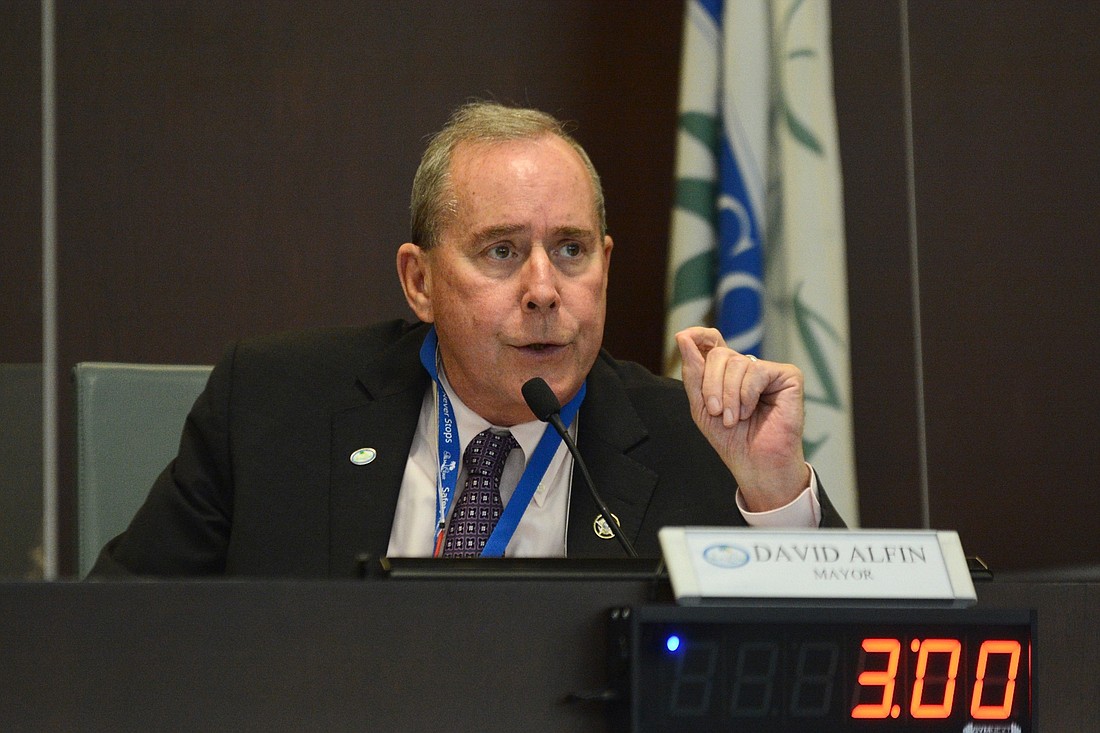- April 24, 2024
-
-
Loading

Loading

The Palm Coast City Council voted 4-1 to approve the proposed tentative budget on Sept. 8, including the millage rate. Councilman Ed Danko was the dissenting vote.
The meeting was contentious, with terse back and forth between council members and a series of upset public commenters over the two and a half hour meeting.
“If we roll back [the millage rate], that means this city is going to be short $4.2 million,” council member Eddie Branquinho said. “That’s what the rollback means.”
The millage rate of Palm Coast is proposed to stay at $4.6100 per $1,000 of property value. This property tax is the largest source of revenue for the city’s proposed budget for the 2023 fiscal year, according to Gwen Ragsdale, Budget & Procurement manager. It's projected to generate $33.3 million in revenue for the fiscal year 2023 budget.
The council will meet for a final approval on this rate and the fiscal year 2023 budget at 5:15 p.m. on Sept. 21.
Mayor David Alfin reiterated his message from his Garfield demonstration a week earlier: The millage increase is a reflection of the growing property values.
“Most of you will hardly see an increase in your city taxes at all; some who are not homesteaded may see more elevated rates,” Alfin said.
Members of the public showed up in force to protest the tax rate.
Many had issues with the cost of specific areas like the fleet budget, or projects that could potentially be postponed to reduce costs to the public now. Others simply can’t afford another cost increase on their fixed incomes.
William Roberts, from District 2, said he was homesteaded last year on a lot he bought 20 years ago, and the new rate will increase the cost of his taxes several grand — too much for his pockets. Roberts said he’s going to need to sell the house now.
“In this room, everyone has had to take cut backs and learn how to deal with the budget,” Roberts said, “and I think the city of Palm Coast does too.”
One Palm Coast resident, Thomas Rohr, said he moved his wife and children down to Palm Coast from New York to get away from the taxes and make a better life for his family. He said he took a 50% pay cut doing so, and just found out that his taxes here are going up to almost $6,000.
“I don’t know where you think the money is coming from, because there’s no tree in my backyard with $100 bills growing on it.”
— THOMAS ROHR, Palm Coast resident
“My taxes in New York were $7,000, making almost double what I’m making now,” Rohr said. “I don’t know where you think the money is coming from, because there’s no tree in my backyard with $100 bills growing on it.”
Council member Ed Danko, of District 1, was the only member to vote against keeping the tax rate at 4.6100. He, like several of the public commenters, referenced his experience in the business industry. He said that the city government department heads can’t always get everything they want.
“Their job is to go back and live within the budget constraints we give them,” Danko said. “Make cuts where you need to make cuts.”
Other council members were not so convinced the budget could be trimmed. District 2 council member John Fanelli said if department heads are hiding where the money can be cut, he can’t find it.
“I want to roll it back too,” Fanelli said. “But I also want to know what that means when I do it and what we’re losing when it happens.”
Nick Klufas, the District 3 council member, was concerned that cutting costs would risk emergency services or sorely needed road maintenance.
“There’s not any fat in the budget to go through and just chop off a million dollars here, a million dollars there,” Klufas said.
Branquinho said he talked to several people leading up to Thursday’s meeting about what a rollback rate would mean.
Even measures to save money, like a hiring freeze, wouldn't be enough to make up the budget shortfall that would be created by dropping the rate to the rollback rate, and the domino effect of that kind of action would be "unbelievable" for the city, he said.
“If we roll back,” Branquinho said, “it is not a guarantee but its very close — we’re going to lose people.”